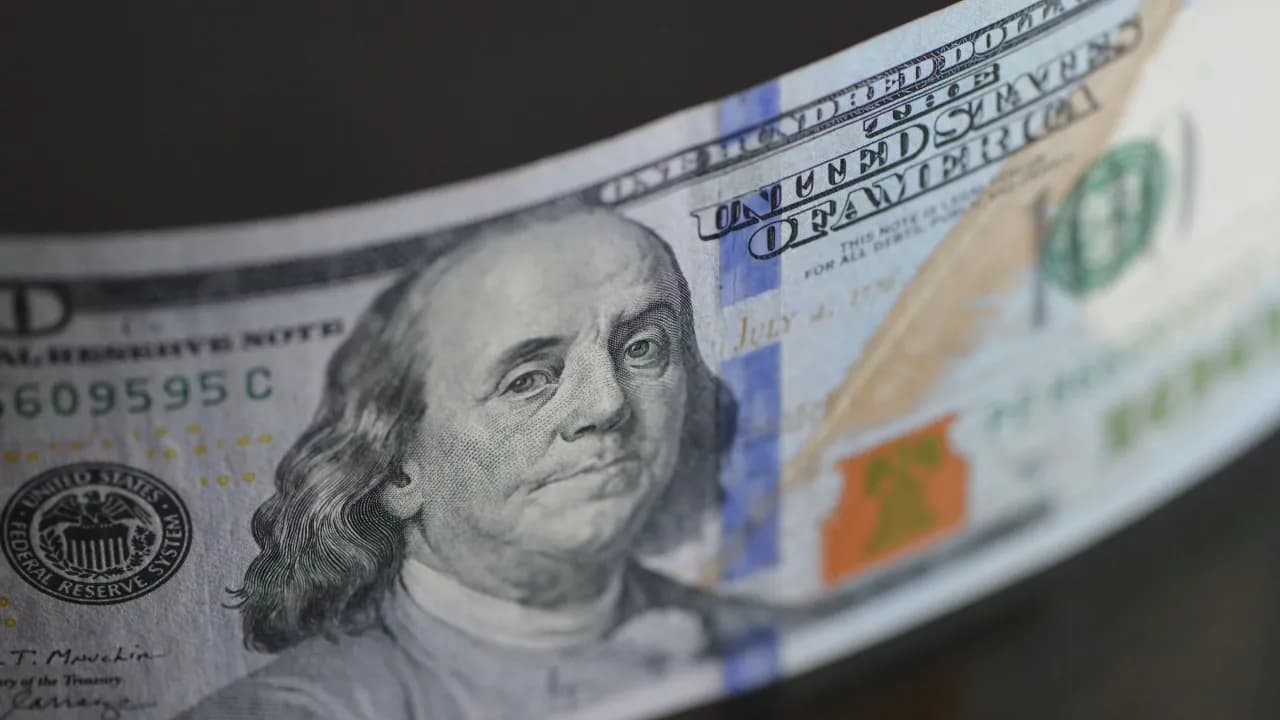Kansas City Fed’s Jeff Schmid emphasized on Monday the need to remain vigilant about inflation that has remained sticky.
The U.S. dollar has weathered the government shutdown relatively well and has been broadly rising, with the greenback now rising for three consecutive sessions. In the Asian session, the currency rose 0.33% to 98.91, a level not seen since Aug.11, although it is still down 9% for the year-to-date period.
The U.S. Dollar Index (DXY), an index that measures the value of the greenback against a basket of six currencies belonging to the country’s major trading partners, was up 0.33% to $98.91 early Wednesday. The Invesco DB US Dollar Index Bullish Fund (UUP) rose 0.43% in overnight trading, according to Yahoo Finance.
The U.S. currency’s revival could be attributed to the decline in rate-cut chatter, as government data releases have been delayed, and some Federal Reserve speakers who made public appearances recently issued hawkish comments. Kansas City Fed’s Jeff Schmid emphasized on Monday the need to remain vigilant about inflation that has remained sticky. His views were echoed by Minneapolis Fed’s Neel Kashkari, who said any drastic rate cuts would stoke inflation.
The greenback also received support from geopolitical developments that weighed down on some of its major counterparts. The Japanese yen has depreciated by approximately 3.5% against the dollar this week following the announcement that pro-stimulus leader Sanae Takaichi will be the new leader of the ruling Liberal Democratic Party (LDP). While the Japanese stock market welcomed the election, the yen weakened to its lowest since February on concerns about fiscal extravagance.
Meanwhile, the political impasse in France, following the resignation of Sébastien Lecornu after serving in office for less than a month, has hurt the euro, the common currency of the 27-nation EU bloc. Lecornu’s resignation was precipitated by his inability to push through austerity measures in parliament. French President Emmanuel Macron is now left with the responsibility of choosing another Prime Minister or dissolving parliament and holding new elections. On a positive note, Lecornu has reportedly accepted a request from Macron to work on a plan for the “stability of the country.”
The political instability in Europe’s second-largest economy has sparked concerns about a broader eurozone-wide debt crisis. From a mid-September high of 1.1919 against the dollar, the euro has lost about 2.5% and currently trades around the 1.16 levels.
The dollar’s strength has come despite a rise in gold to a record high. FolioBeyond analyst Dean Smith said the gold breaching the $4,000 barrier meant that investors are no longer sure if they are willing to tie their “prosperity and economic future so closely with” U.S. dollar assets, according to a Bitget report.
For updates and corrections, email newsroom[at]stocktwits[dot]com.<
